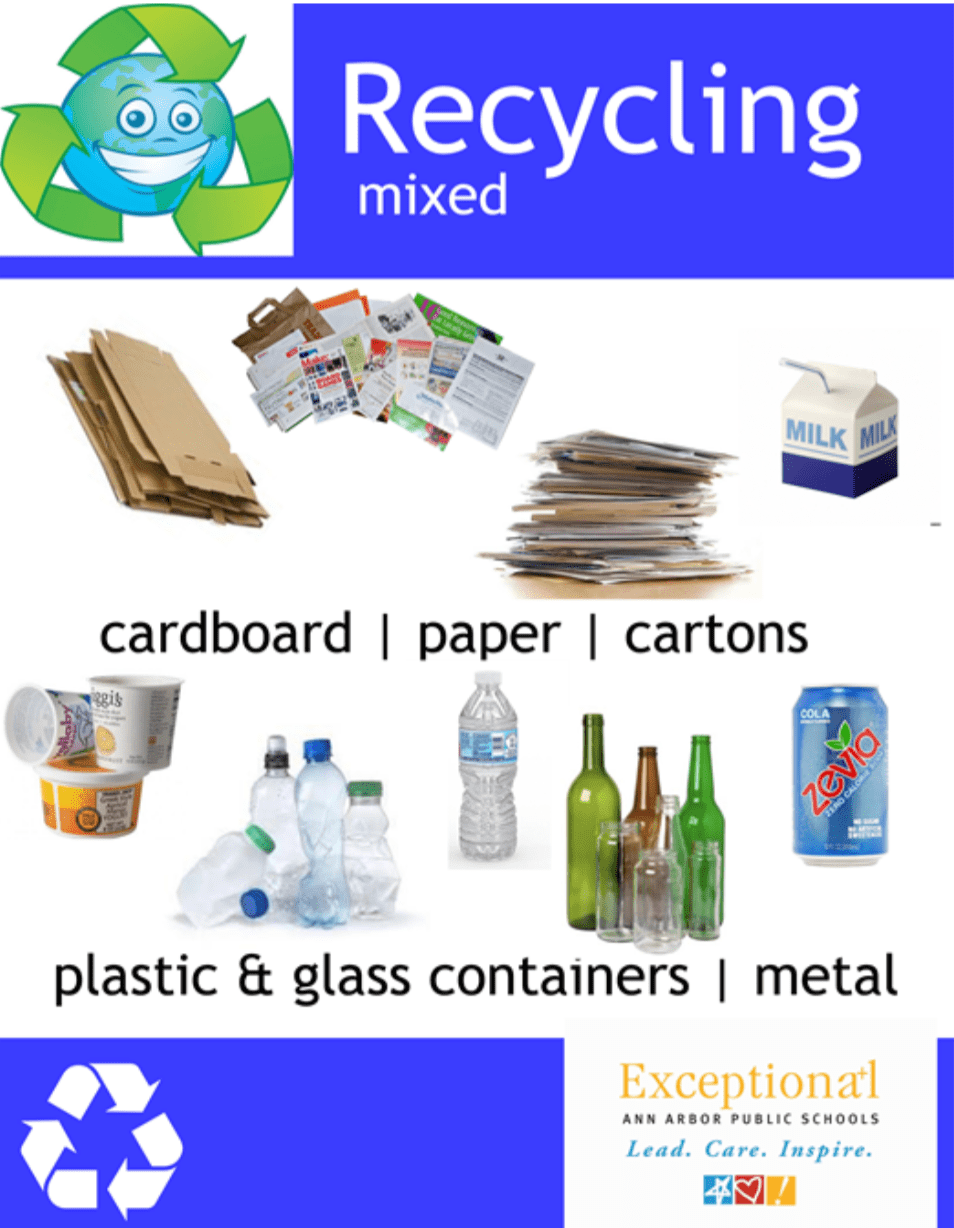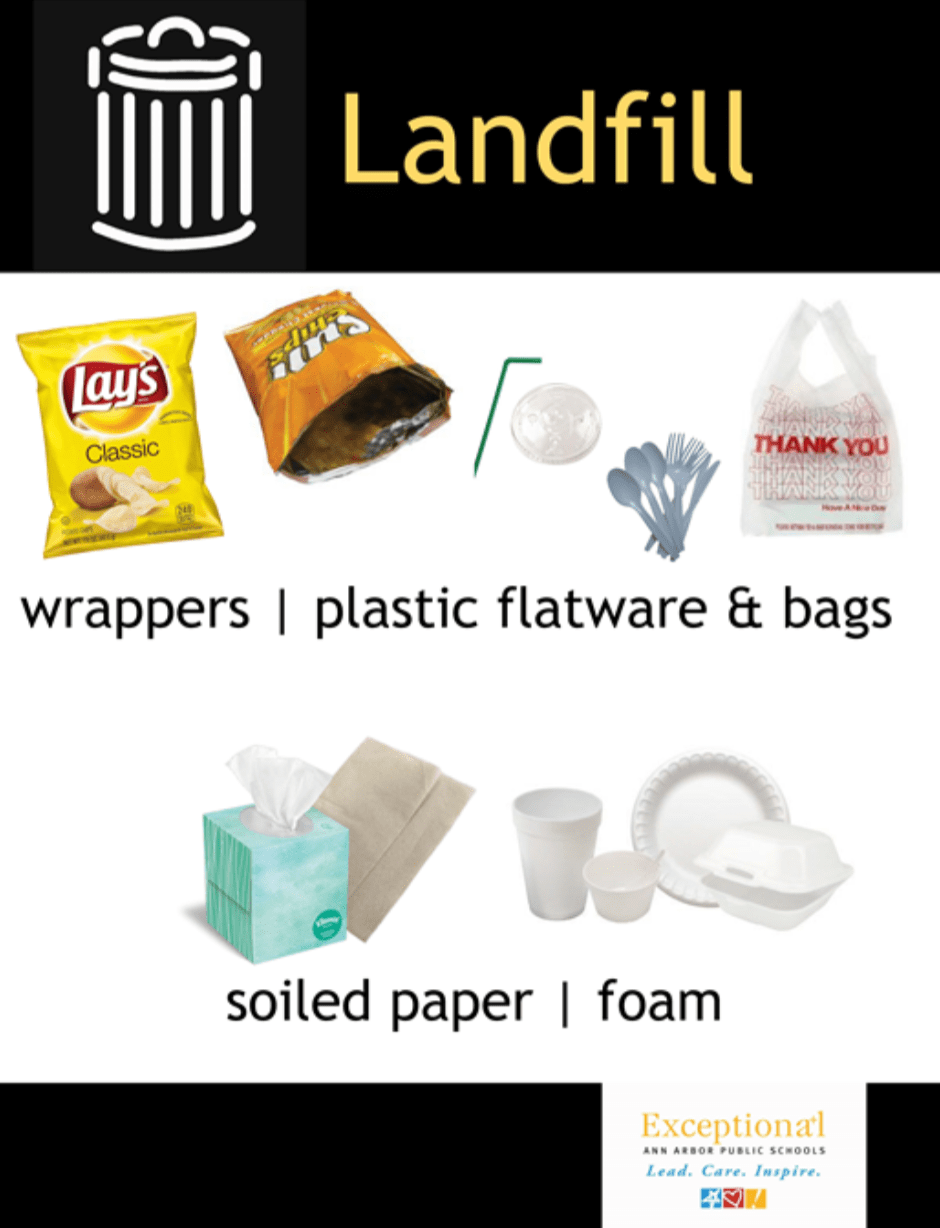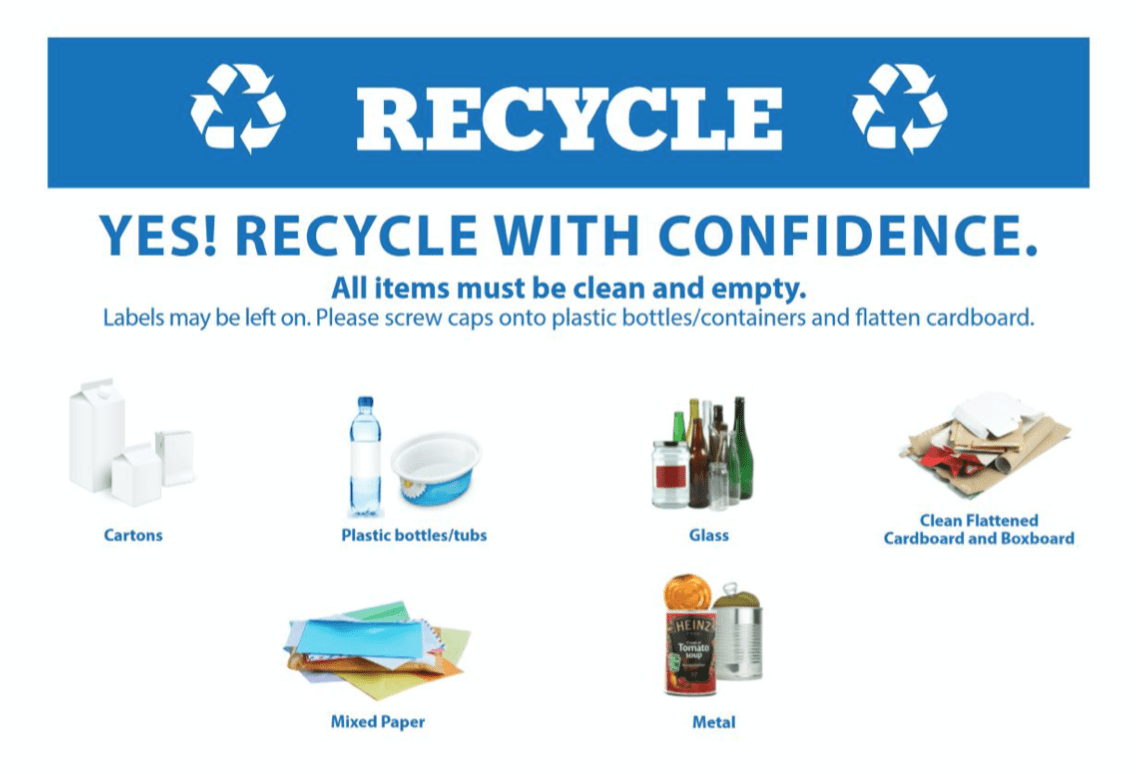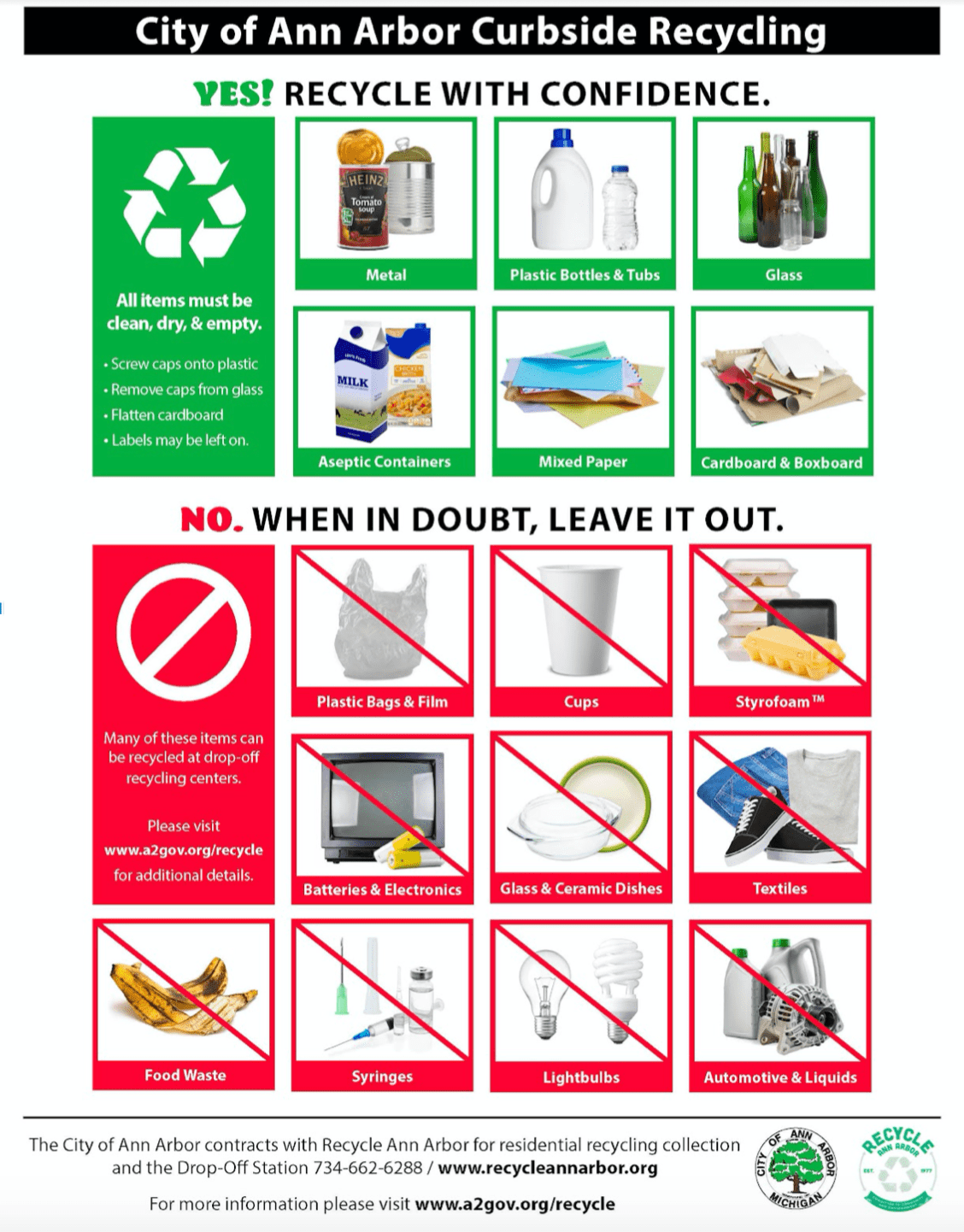For Ann Arbor Public Schools
Ecology Center environmental programs have been a feature of the Ann Arbor educational experience for more than 40 years. The Ecology Center is partnered with the Freeman Center's Environmental Educators to provide field trip experiences for all Ann Arbor Public School 2nd grade and 7th grade students.
Resources for Ann Arbor School District
Recycling rules/ poster (images below)
More Info about the Freeman Center.
Downloadable Versions



For Ann Arbor Businesses & Multi-Family Residents
Ecology Center Environmental Education team has partnered with the City of Ann Arbor to provide recycling education for residents including multi-family communities and Ann Arbor's businesses. We provide hands on training for businesses & multi-family facilities in order to help make recycling easier. To schedule a recycling site visit contact [email protected].
Visit the City of Ann Arbor's website for more information about Recycling, Composting, & Trash Services.



